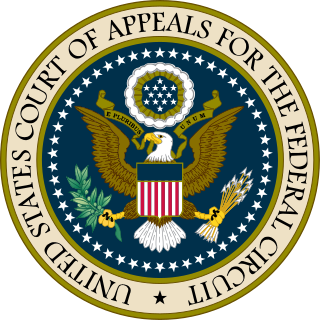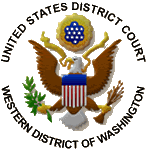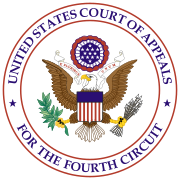
MAI Systems Corp. v. Peak Computer, Inc., 991 F.2d 511, was a case heard by the United States Court of Appeals for the Ninth Circuit which addressed the issue of whether the loading of software programs into random-access memory (RAM) by a computer repair technician during maintenance constituted an unauthorized software copy and therefore a copyright violation. The court held that it did, although the United States Congress subsequently enacted an amendment to 17 U.S.C. § 117 to specifically overrule this holding in the circumstances of computer repair.
Copyright misuse is an equitable defence to copyright infringement in the United States based upon the doctrine of unclean hands. The misuse doctrine provides that the copyright holder engaged in abusive or improper conduct in exploiting or enforcing the copyright will be precluded from enforcing his rights against the infringer. Copyright misuse is often comparable to and draws from the older and more established doctrine of patent misuse, which bars a patentee from obtaining relief for infringement when he extends his patent rights beyond the limited monopoly conferred by the law.

The Chamberlain Group, Inc. v. Skylink Technologies, Inc., 381 F.3d 1178 is a legal case heard by the United States Court of Appeals for the Federal Circuit concerning the anti-trafficking provision of the Digital Millennium Copyright Act (DMCA), 17 U.S.C. § 1201(a)(2), in the context of two competing universal garage door opener companies. It discusses the statutory structure and legislative history of the DMCA to help clarify the intent of the anti-circumvention provisions and decide who holds the burden of proof. It expresses that the statute creates a cause of action for liability and does not create a property right, and holds that as Chamberlain had alleged that Skylink was in violation of the anti-trafficking provision, it had the burden to prove and failed to show that access was unauthorized and its rights were infringed under the Copyright Act. As Chamberlain incorrectly argued that Skylink had the burden of proof and failed to prove their claim, the court upheld summary judgment in favor of Skylink.
MGM Studios, Inc. v. Grokster, Ltd., 545 U.S. 913 (2005), is a United States Supreme Court decision in which the Court ruled unanimously that the defendants, peer-to-peer file sharing companies Grokster and Streamcast, could be held liable for inducing copyright infringement by users of their file sharing software. The plaintiffs were a consortium of 28 entertainment companies, led by Metro-Goldwyn-Mayer studios.

In re Aimster Copyright Litigation, 334 F.3d 643, was a case in which the United States Court of Appeals for the Seventh Circuit addressed copyright infringement claims brought against Aimster, concluding that a preliminary injunction against the file-sharing service was appropriate because the copyright owners were likely to prevail on their claims of contributory infringement, and that the services could have non-infringing users was insufficient reason to reverse the district court's decision. The appellate court also noted that the defendant could have limited the quantity of the infringements if it had eliminated an encryption system feature, and if it had monitored the use of its systems. This made it so that the defense did not fall within the safe harbor of 17 U.S.C. § 512(i). and could not be used as an excuse to not know about the infringement. In addition, the court decided that the harm done to the plaintiff was irreparable and outweighed any harm to the defendant created by the injunction.

Computer Associates International, Inc. v. Altai, Inc., 982 F.2d 693 is a decision from the United States Court of Appeals for the Second Circuit that addressed to what extent non-literal elements of software are protected by copyright law. The court used and recommended a three-step process called the Abstraction-Filtration-Comparison test. The case was an appeal from the United States District Court for the Eastern District of New York in which the district court found that defendant Altai's OSCAR 3.4 computer program had infringed plaintiff Computer Associates' copyrighted computer program entitled CA-SCHEDULER. The district court also found that Altai's OSCAR 3.5 program was not substantially similar to a portion of CA-SCHEDULER 7.0 called SYSTEM ADAPTER, and thus denied relief as to OSCAR 3.5. Finally, the district court concluded that Computer Associates' state law trade secret misappropriation claim against Altai was preempted by the federal Copyright Act. The appeal was heard by Judges Frank Altimari, John Daniel Mahoney, and John M. Walker, Jr. The majority opinion was written by Judge Walker. Judge Altimari concurred in part and dissented in part. The Second Circuit affirmed the district court's ruling as to copyright infringement, but vacated and remanded its holding on trade secret preemption.

BMG Music v. Gonzalez, 430 F.3d 888, was a court decision in which the United States Court of Appeals for the Seventh Circuit ruled that a record company could sue a person who engaged in online sharing of music files for copyright infringement. The decision is noteworthy for rejecting the defendant's fair use defense, which had rested upon her contention that she was merely "sampling" songs with the intention of possibly purchasing the downloaded songs in the future, a practice known informally as "try before you buy".
Substantial similarity, in US copyright law, is the standard used to determine whether a defendant has infringed the reproduction right of a copyright. The standard arises out of the recognition that the exclusive right to make copies of a work would be meaningless if copyright infringement were limited to making only exact and complete reproductions of a work. Many courts also use "substantial similarity" in place of "probative" or "striking similarity" to describe the level of similarity necessary to prove that copying has occurred. A number of tests have been devised by courts to determine substantial similarity. They may rely on expert or lay observation or both and may subjectively judge the feel of a work or critically analyze its elements.

Data East USA, Inc. v. Epyx, Inc. 862 F.2d 204, 9 U.S.P.Q.2d (BNA) 1322 was a court case between two video game manufacturers, where Data East claimed that their copyright in Karate Champ was infringed by World Karate Championship, a game created by Epyx. Data East released Karate Champ in arcades in 1984, and the game became a best-seller and pioneered the fighting game genre. The next year, Epyx published World Karate Championship for home computers, which sold 1.5 million copies. Data East sued Epyx, alleging that the game infringed on their copyright and trademark.

MDY Industries, LLC v. Blizzard Entertainment, Inc and Vivendi Games, Inc., 629 F.3d 928, is a case decided by the United States Court of Appeals for the Ninth Circuit. At the district court level, MDY had been found liable under theories of copyright and tort law for selling software that contributed to the breach of Blizzard's End User License Agreement (EULA) and Terms of Use (ToU) governing the World of Warcraft video game software.
The court's ruling was appealed to the United States Court of Appeals for the Ninth Circuit, which reversed the district court in part, upheld in part, and remanded for further proceedings. The Court of Appeals ruled that for a software licensee's violation of a contract to constitute copyright infringement, there must be a nexus between the license condition and the licensor’s exclusive rights of copyright. However, the court also ruled, contrary to Chamberlain v. Skylink, that a finding of circumvention under the Digital Millennium Copyright Act does not require a nexus between circumvention and actual copyright infringement.

Vernor v. Autodesk, Inc. was a case in the United States District Court for the Western District of Washington regarding the applicability of the first-sale doctrine to software sold under the terms of so-called "shrinkwrap licensing." The court held that when the transfer of software to the purchaser materially resembled a sale it was, in fact, a "sale with restrictions on use" giving rise to a right to resell the copy under the first-sale doctrine. As such, Autodesk could not pursue an action for copyright infringement against Vernor, who sought to resell used versions of its software on eBay. The decision was appealed to the United States Court of Appeals for the Ninth Circuit, which issued a decision on September 10, 2010, reversing the first-sale doctrine ruling and remanding for further proceedings on the misuse of copyright claim. The Ninth Circuit's decision asserted that its ruling was compelled by Ninth Circuit precedent, but observed that the policy considerations involved in the case might affect motion pictures and libraries as well as sales of used software.

Lasercomb America, Inc. v. Reynolds, 911 F.2d 970 is an appeal filed in the United States Court of Appeals for the Fourth Circuit. Initially, Lasercomb filed an action against Holiday Steel for breach of contract, copyright infringement, misappropriation of trade secrets, fraud, unfair competition, and false designation of origin. The United States District Court ruled in favor of Lasercomb, awarding them punitive damages and actual damages for fraud, rejecting the defense of copyright misuse. On appeal, based on a recognition of the similarity to patent misuse, the holding was reversed, deeming the language contained in the license agreement unreasonable.

Bowers v. Baystate Technologies, 320 F.3d 1317, was a U.S. Court of Appeals Federal Circuit case involving Harold L. Bowers and Baystate Technologies over patent infringement, copyright infringement, and breach of contract. In the case, the court found that Baystate had breached their contract by reverse engineering Bower's program, something expressly prohibited by a shrink wrap license that Baystate entered into upon purchasing a copy of Bower's software. This case is notable for establishing that license agreements can preempt fair use rights as well as expand the rights of copyright holders beyond those codified in US federal law.

Viacom International, Inc. v. YouTube, Inc., 676 F.3d 19, was a United States Court of Appeals for the Second Circuit decision regarding liability for copyright infringement committed by the users of an online video hosting platform.

Asset Marketing Systems, Inc. v. Gagnon was a case heard by the United States Court of Appeals for the Ninth Circuit regarding implied licenses to use, modify and retain the source code of computer programs, and the enforceability of non-competition agreements. The court affirmed the ruling from the United States District Court for the Southern District of California that Kevin Gagnon, a software contractor doing business as "Mr. Computer", had implicitly granted Asset Marketing Systems (AMS) an unlimited license to use, modify and retain the source code of the programs that Gagnon created. The case is notable because the Court held that an implied software license is granted when the licensee requests the creation of a work, the licensor creates and delivers the work, and the licensor intends the licensee to copy and distribute the work.

Ho v. Taflove is a Seventh Circuit case about the copyrightability of scientific data. In 2011, the Seventh Circuit affirmed a 2009 decision of the United States District Court for the Northern District of Illinois holding that the expression of ideas can be copyrighted but not the ideas themselves.

Barclays Capital Inc. v. Theflyonthewall.com, Inc., 650 F.3d 876, was a case decided in the United States Court of Appeals for the Second Circuit where the Second Circuit, reversing the decision of the US District Court below it, found that the claims of three major financial investment firms against an internet subscription stock news service (theflyonthewall.com) for "Hot-news" Misappropriation under state common law doctrine could not stand, as they were pre-empted by several sections of the Federal Copyright Act.

Rosetta Stone v. Google, 676 F.3d 144 was a decision of the United States Court of Appeals for the Fourth Circuit that challenged the legality of Google's AdWords program. The Court overturned a grant of summary judgment for Google that had held Google AdWords was not a violation of trademark law.
Contributory copyright infringement is a way of imposing secondary liability for infringement of a copyright. It is a means by which a person may be held liable for copyright infringement even though he or she did not directly engage in the infringing activity. In the United States, the Copyright Act does not itself impose liability for contributory infringement expressly. It is one of the two forms of secondary liability apart from vicarious liability. Contributory infringement is understood to be a form of infringement in which a person is not directly violating a copyright but induces or authorises another person to directly infringe the copyright.







